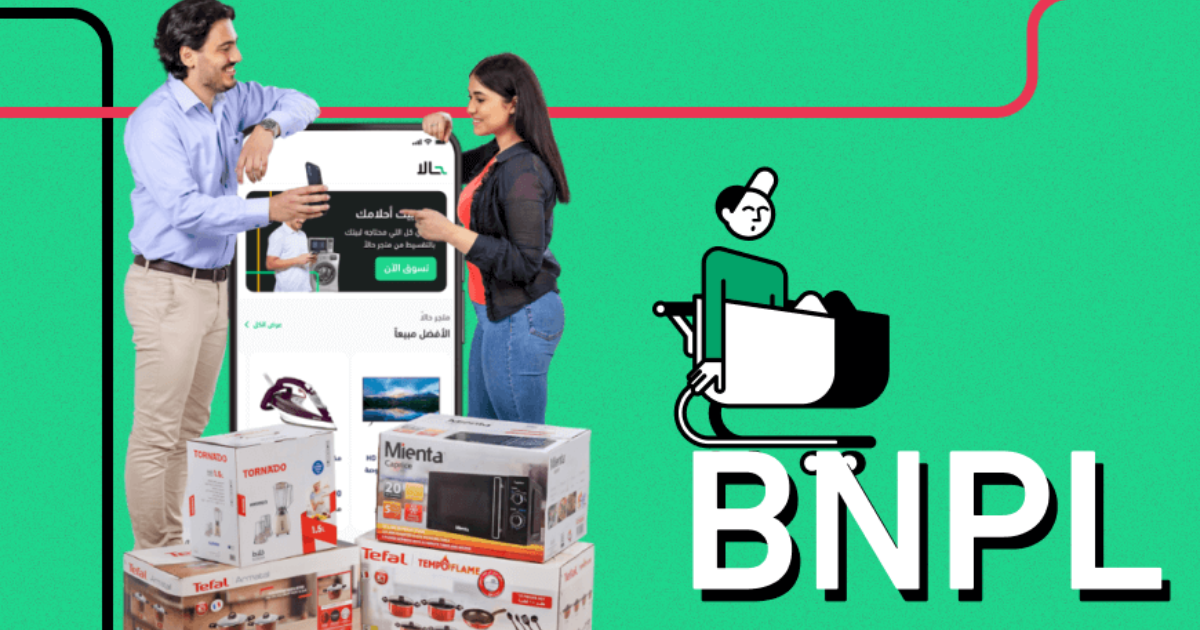Examining the Buy Now Pay Later Financing Option in Nigeria

Nigeria, with a population of approximately 220 million people, should have been a thriving market for producers of various products and services, but this is not the case due to weak purchasing power as a result of the twin factors of a largely unemployed and underemployed population. This is exacerbated by the country’s rising inflation, which has resulted in declining purchasing power among the populace, limiting their earnings and spending ability.
According to a Fitch Solutions report in 2022, Nigeria’s rising inflation rate could be a major risk to consumer spending in 2022. The report projected that real household spending is expected to increase by 3.6 percent in 2022, a slight decrease from the estimated 3.7 percent growth in 2021.
As a result of this pressure, acquiring new assets such as mobile phones, laptop computers, and home appliances while paying the total cost of acquisition at the point of purchase has become a difficult task. This, combined with the need for merchants to drive sales, has given rise to Buy Now Pay Later — BNPL — a type of short-term asset financing.
With low purchasing power as a result of inflation, Nigerians have turned to “Buy Now Pay Later” platforms for assistance as the harsh economic reality hits households and consumers. Buy Now, Pay Later (BNPL) is a type of short-term financing that allows consumers to make purchases and pay for them later, often with no interest. BNPL arrangements, also known as “point of sale installment loans,” are becoming a more popular payment option, particularly when shopping online.
The BNPL platforms provide a type of short-term interest-free financing that allows individuals to buy items and claim immediate ownership by paying a portion of the cost now and spreading the balance over an agreed-upon period.
What you should know about Buy Now Pay Later
According to CB Insights, BNPL startups raised a record $1.5 billion globally in 2020. The sector is expected to reach $680 billion in transaction volume by 2025.
Moreover, according to the Q4 2021 BNPL Survey, BNPL payments in Nigeria are expected to rise 111.2 percent year on year to $1920.3 million in 2022. Growth Value Merchandise is expected to grow from $204 million to over $1 billion by 2028, highlighting BNPL’s growth. The medium-to-long-term growth story of Nigeria’s BNPL industry remains strong. Its payment adoption rate is expected to increase steadily, with a CAGR of 54.0 percent from 2022 to 2028.
Fintech and e-commerce startups are leading the way in terms of adoption. These startups offer short-term financing for consumer purchases such as smartphones, laptop computers, household appliances and items, and even automobiles. With only 2% of the 106 million adult population having access to bank credit, credit cards are noticeably absent, as banks frequently refrain from consumer lending. Platforms are increasingly becoming alternatives and are expected to grow further.
Jumia, an e-commerce giant, was among the first to offer the buy-now-pay-later option in 2015. However, the sector has since grown to a multi-million dollar industry, with startups such as M-Kopa, EasyBuy, Omnibiz, Carbon, CDCare, CredPal, and Klump, among others, offering BNPL financing to Nigerians.
/cdn.vox-cdn.com/uploads/chorus_image/image/69333291/GettyImages_1043605040.0.jpg)
Factors Driving Buy Now Pay Later adoption in Nigeria
Multiple variables have been identified as driving the adoption and popularity of BNPL arrangements in the country, including an increase in sales for merchants – BNPL provides an easy path to increasing sales – provision of credit to the underbanked, and access to cheap/less risky credit for consumers.
Furthermore, the flexibility that BNPL provides users allows them to buy more, which helps these fintech and e-commerce startups that offer BNPL services ramp up revenue. Without a doubt, BNPL provides consumers with access and is an excellent strategy for retaining users.
Another major reason Nigerians use BNPL platforms is their inability to afford the items they desire due to inflation and low purchasing power.
Challenges of BNPL in Nigeria
Concerns include a lack of a comprehensive credit scoring system as well as a fragmented identity infrastructure.
Also, in a low-trust economy like Nigeria, where credit infrastructure is still in its infancy, the BNPL model appears difficult to implement. Managing default remains at the forefront of the model’s sustainability.
While it allows Nigerians to buy certain items and spread out payments, experts have noted that there are some potential risks. In Nigeria, growing concern about the malicious behavior of credit-offering platforms has led some to question BNPL platforms and their business model. Furthermore, the growing popularity of the services has raised concerns about how much debt these BNPL service providers are allowing individuals to incur.
Furthermore, despite the payment flexibility and perceived affordability of BNPL, there are concerns that the prices of items quoted by BNPL providers are significantly higher than what is offered in physical outlets or even other Non-BNPL eCommerce sites.
In a country such as Nigeria, where people have limited access to traditional financial services, the ease of obtaining and repaying credit is critical. While credit offerings are necessary because people have limited access to loans from formal banking institutions, Nigerians are prone to loan default. Given that per capita income has remained low, one has to wonder if it will not put a strain on debt collections, as it has with quick loan apps. Poverty is increasing, and while lending appears appealing to Nigerians, repayment remains a challenge.
A further issue with BNPL is that it may encourage rash purchasing. Although it is marketed as an interest-free alternative to credit card payments, the ease of asset acquisition provided may invariably lead to impulse spending. However, no matter how one looks at it, BNPL is here to stay.
